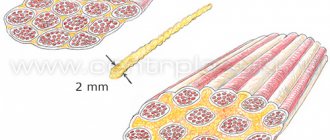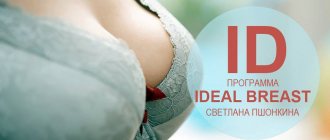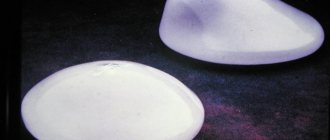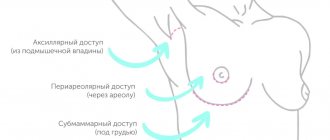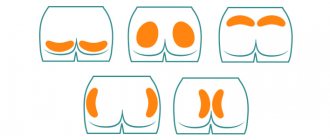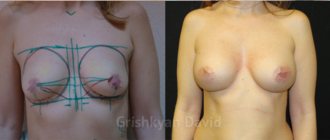Cost of breast lipofilling
will depend on whether one breast or two are being corrected, as well as on the volume of liposuction performed.
VIEW PRICES
| Breast lipofilling | Tariff price | Cost of materials | General prices |
| Mastopexy (1 side) for moderate ptosis | 860 rubles | 57 rubles | 917 rubles |
| Mastopexy (2 sides) for moderate ptosis | 1740 rubles | 110 rubles | 1850 rubles |
| Mastopexy (1 side) for severe ptosis | 990 rubles | 68 rubles | 1058 rubles |
| Mastopexy (2 sides) for severe ptosis | 2010 rubles | 100 rubles | 2110 rubles |
| Mammoplasty with an endoprosthesis (1 side) | 1610 rubles | 290 rubles | 1900 rubles |
| Mammoplasty with an endoprosthesis (2nd side) | 2930 rubles | 570 rubles | 3500 rubles |
| Correction of inverted nipples (1 side) | 230 rubles | 35 rubles | 265 rubles |
The lipofilling procedure is suitable for those patients who have local deposits of excess fat on the abdomen, outer and inner thighs, back, sides, knees, and whose breast size and shape needs correction.
The main advantages of breast augmentation with your own fat tissue
- Own fatty material does not cause rejection, irritation, or allergies;
- Unlike breast correction using implants, with lipofilling the surgeon creates beautiful, individually shaped breasts that look very natural. The bust after lipofilling does not differ from the natural one;
- Short period of patient rehabilitation.
As a result of breast augmentation surgery (without implants) using fat and simultaneous liposuction, a double aesthetic effect is obtained: beautiful breasts plus slender hips, a flat stomach and the absence of fat deposits in other unwanted places.
Prices for services
| Price | On credit* | |
| Body lipofilling fat volume up to 100 ml (without Puregraft cost) | 55,000 rub. | from RUB 5,496/month |
| Body lipofilling fat volume more than 100 ml (without Puregraft cost) | 85,000 rub. | from RUB 8,494/month |
| Body lipofilling fat volume more than 200 ml (without Puregraft cost) | 125,000 rub. | from RUB 12,491/month |
| Consultation with a plastic surgeon for surgery | 0 rub. | — |
Average cost of services
You can find out how much our plastic surgery services cost on average by calling in St. Petersburg: +7
SM-Clinic surgeons will develop an individual operation plan for you, since surgical body correction is often planned and carried out in a complex manner. The exact cost is calculated individually after consultation with a doctor.
Plastic surgery on credit and in installments
In the first six months, about 40-60% of the transplanted fat is absorbed. This is taken into account when calculating its amount before surgery. Fat cells are taken from the abdomen, buttocks or thighs using thin cannulas through micropunctures. There are no traces left. Then the biomaterial is cleaned and injected into the problem area.
Preparation for breast lipofilling
- Do all the necessary tests;
- Get complete information about the procedure during a conversation with a plastic surgeon. For example, the patient should know that breast enlargement using lipofilling is only possible by 1-1.5 sizes;
- Attend a consultation with an anesthesiologist and mammologist;
- If the patient is taking any medications, inform the doctors;
- Quit (at least temporarily) smoking and drinking alcohol;
- Avoid tanning in direct sunlight (ultraviolet rays weaken immunity).
Operation price
The cost depends on various factors. This is the amount of work, the patient’s health condition, the length of stay in the hospital, and the qualifications of the surgeon.
The average price for lipofilling in Moscow is from 150,000 to 450,000 rubles. If there is a need for repeated correction, this will be an additional investment.
Attention! If a woman is planning to undergo this operation, she should read reviews of women about lipofilling. You should also take your choice of doctor seriously, which will also help with reviews from those who have already performed a similar operation.
The lipofilling operation takes place in three stages
1st stage:
manipulation of the collection of donor fat cells - liposuction with preservation of adipose tissue, which is taken from areas of the body where it is in excess (for example, thighs, abdomen); Fat material is taken in a special way to avoid damage to fat cells;
2nd stage:
cleaning fat cells. The adipose tissue is washed and centrifuged to separate it from blood, dead cells and other impurities;
3rd stage:
fat grafting. The doctor injects fat cells with a syringe in small portions into the required areas, evenly distributing them, avoiding the formation of unevenness and disruption of breast symmetry.
Plastic surgeons at the clinic
Davydov Alexander Sergeevich
Experience - 14 years
Head of the Department of Plastic Surgery. Leading plastic surgeon. Certified specialist in plastic surgery and general surgery. Participant in master classes on plastic surgery.
Yakimov Dmitry Konstantinovich
Experience - 38 years
Doctor of the highest category. Candidate of Medical Sciences. Member of the Society of Plastic Surgeons. Author of more than 30 works in the field of surgery, teacher at the Military Medical Academy.
Gvaramiya Eka Yurievna
Experience - 17 years
Participant of congresses, conferences and seminars on plastic surgery. Priority areas: mammoplasty (breast plastic), blepharoplasty, tummy tuck (abdominoplasty), liposuction, lipofilling, face lift, lip plastic, ear plastic, intimate plastic, body plastic, reconstructive plastic, solving aesthetic problems.
Abzaleva Guzel Rinatovna
Experience - 15 years
Participant of congresses, conferences and seminars on plastic surgery. Priority areas: blepharoplasty, lipofilling, intimate plastic surgery, abdominoplasty, breast plastic surgery.
Garifulin Marat Sagitovich
Experience - 19 years
Priority areas: mammoplasty and gynecomastia (including in men), waist shaping, blepharoplasty, otoplasty, abdominoplasty.
Manatov Magomed Gadzhimuradovich
Experience - 5 years
Areas of work: Comprehensive recovery after childbirth. Rejuvenation of face and body. Mammoplasty. Rhinoplasty. Body liposculpture.
FAQ:
How does adipose tissue implantation occur?
During breast augmentation with lipofilling, the surgeon inserts fatty tissue into the submammary space and under the skin of the mammary glands, which distributes the fat evenly and forms beautiful breasts. The lipofilling procedure does not cause the formation of scars and cicatrices; after it only small traces of punctures remain, which disappear after a few days.
Is it possible to have surgery if a woman has naturally healthy and beautiful breasts?
Typically, lipofilling of the mammary glands is indicated if a woman has a bust deformation, for example, after surgery for breast cancer, or if her breasts are asymmetrical or small. The procedure of breast augmentation with fat is necessary to correct the shape of the breast; implants are used to increase the size of healthy, non-deformed mammary glands.
What is not recommended to do the day before surgery?
The procedure for lipofilling of the mammary glands requires preparation: on the eve of the operation, you should not smoke, drink alcohol, sunbathe, or take drugs that reduce blood clotting, for example, aspirin. On the day of surgery, when there are 3-4 hours left before the procedure, heavy drinking and eating are prohibited, as this affects the safety of anesthesia. You should also avoid applying creams to your face and body.
Is one operation enough to achieve long-lasting aesthetic results?
One operation is usually not enough. The procedure often needs to be repeated 2-3 times, the interval between surgical interventions is at least 4 months. The desired result cannot be achieved immediately, since up to 30% of the fat does not survive.
Lipofilling of the mammary glands is performed under local anesthesia, or not?
Since the lipofilling procedure is performed simultaneously with liposuction, the patient is under general anesthesia. The correction procedure, adding fat cells to the mammary glands, is carried out under local anesthesia, the patient can leave the hospital an hour after the operation.
How is breast correction performed?
Preparation period
During this period, it is important to have a good psychological attitude. You also need to prepare yourself physiologically, for example, stop drinking alcohol and smoking for a month.
During the first examination, the doctor identifies problem areas and designates areas from which fatty tissue will be removed. To assess the patient’s health, an examination is carried out, tests are prescribed, and an ECG is performed.
At the appointed time for surgery, a woman should not eat or drink water, use cosmetics, creams, deodorants, or paint her nails.
Stages of the procedure
The operation consists of several stages. The duration can be from one and a half to four hours. There is no pain because general anesthesia is performed.
Marking
The surgeon outlines the areas from which fat cells are pumped out. Typically these areas are the abdomen, buttocks and thighs.
The punctures are made using a cannula, which allows them to be small, resulting in no scarring.
Material purification
In the second stage, fat cells are cleansed. It is important to properly remove blood, dead cells, and Klein's solution from the fat, otherwise there is a danger that the cells will not take root.
Introduction
The third stage of the operation is that the already purified cells are injected into the fatty tissue of the breast using a thin syringe. Then a patch is applied to the punctures, and the patient must remain in the hospital for another day.
Correction
Since about 80% of fat cells take root in one operation, additional correction can be carried out over time.
To do this, the extracted fat material is frozen for future use.
Rehabilitation period
This period lasts about a week. Due to severe swelling, the first two days are the most difficult. For a month, a woman should wear compression garments and follow the following recommendations:
- — limit physical activity (temporarily exclude the gym)
- - you can sleep only on your back, after two weeks on your side and after a month on your stomach
- - hot bath, shower, sauna, swimming pool are contraindicated
Important! With lipofilling, there is no rejection, since your own fat cells are used. However, it must be borne in mind that the fat is absorbed over time and the breasts become slightly smaller. The final result will become clear only after three months.
If a woman is not satisfied with the obtained effect, additional corrective surgery can be performed, in some cases even two or three times.
Possible complications
Depending on the body's reaction, fibrocystic formation may occur.
This is possible several months after the operation. Uneven absorption of fat cells can cause breast asymmetry.
In case of insufficiently viscous blood, large hematomas may occur. A large amount of injected material can cause atrophy of your fat cells.
Preparation
For several weeks, avoid alcohol, smoking, and drugs that affect blood clotting. The patient undergoes examination: ECG, general urine and blood tests, biochemical blood test, as well as HIV, syphilis, and hepatitis. Ultrasound and/or mammography may be prescribed. You need to visit a therapist or anesthesiologist.
Before plastic surgery, wash off decorative cosmetics and nail polish. After an evening shower on the eve of the procedure, you should not use body creams or lotions.
What results to expect
It is important to understand that fat transfer is fundamentally different from implants in the sense that it is impossible to accurately predict how much the size will increase from a given transfer procedure.
On average, good technique can increase the volume by approximately 150-200 cm3 (average 1/2 size for one breast) in one transplant procedure. To further increase the volume, the procedure can be repeated after three months. If the patient agrees to use the BRAVA breast enlargement device prior to transplantation (which is essentially an external expander), there is evidence that the volume can be increased to 300 cc or more in one procedure. To date, patient results achieved 4-6 months after surgery are maintained for 4-6 years.
Approximately 50-60% of patients experience continued survival of fat cells carefully transplanted into the area under the skin of the chest close to the muscle. In smokers, the percentage of surviving cells is so low that fat grafting is not recommended earlier than 2 months after quitting smoking. After surgery, you should also refrain from smoking for at least two months.
Risks and complications
The main side effect that causes the most concern is scarring on mammograms. They are the result of some fat tissue that does not survive forming opacities and may cause concern to the radiologist (they may cause changes that appear similar to breast cancer).
Other side effects: risk of infection, death of fat cells (necrosis), resorption of fat tissue, which may require additional fat grafting operations. Healing of the transplanted tissue may be partial or incomplete and may occur differently in each breast, resulting in different breast sizes (asymmetry).
